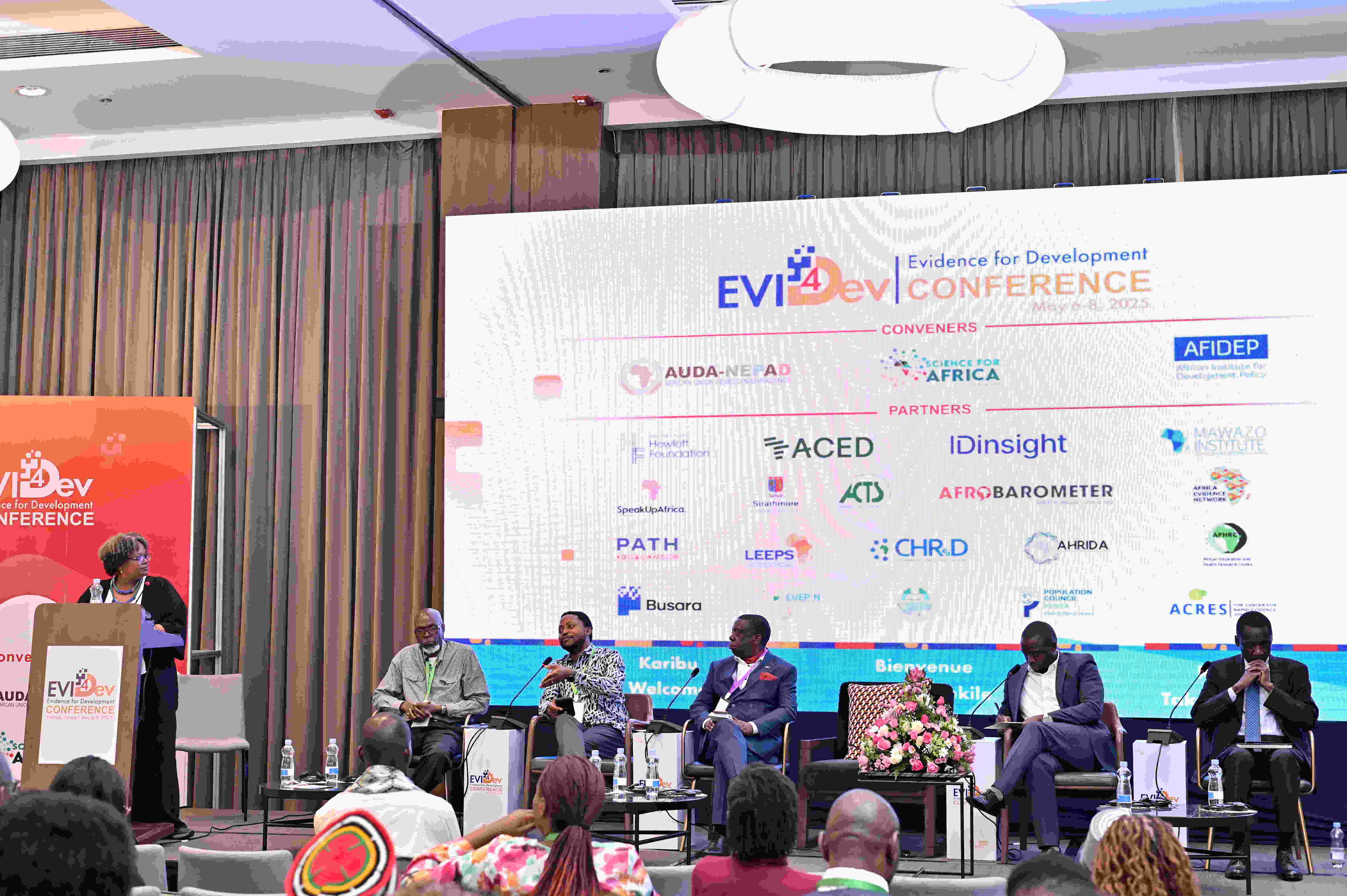News

Nairobi, Kenya, 7 May 2025– The second day of the Evidence for Development (Evi4Dev) Conference highlighted the urgent need for Africa to embrace innovative financing mechanisms, integrate technology, and drive efficiency in health systems to build resilient and equitable healthcare for all.
Dr Daniel Mwai, Presidential Advisor on Health Financing in Kenya, pointed to the fragmentation of services and vertical health programmes as key barriers to efficient health financing.
“We can cut the cost of healthcare in Africa by 40% if we reorganise and plan well in its delivery,” Dr Mwai stated, calling for integration and multi-skilled healthcare workers. He urged countries to focus on preventive healthcare as compared to curative healthcare.
Representing subnational leadership, Roseline Omollo, County Executive Committee Member from Homa Bay County, shared practical strategies the county is using to reduce delivery costs and improve health outcomes at the grassroot level. These include a community-led approach to healthcare, engaging citizens to take responsibility and boosting enrollment into the Social Health Authority (SHA).
“When we talk about medical insurance, the question is always about efficiency and effectiveness,” Ms Omollo said. “ In Homa Bay county, we are reducing costs and increasing coverage by adapting local solutions that resonate with our communities.”
Dr Jackson Otieno, Senior Policy Analyst at the African Institute for Development Policy (AFIDEP), painted a sobering picture of Africa’s fiscal landscape. He highlighted multiple challenges such as climate change, shrinking external aid, growing debt burdens, and global economic uncertainty. Otieno noted that in 2020, Development Assistance for Health (DAH) accounted for more than 20% of health spending in 24 African countries and even surpassed government expenditure in 10 countries.
“African countries should transition from donor dependency to domestic resource mobilisation,” Dr Otieno said, proposing innovative options such as health taxes, and robust anti-corruption measures that could unlock 5–10% in savings. He also highlighted the need for expanding health insurance coverage, integrating technologies like AI to minimise waste, and strengthening financial oversight.
“There is a need to unlock the potential of new technology,” Prof. Murinde, Executive Director of the African Economic Research Consortium (AERC), said. “The adoption of AI, big data and machine learning is key in identifying best practices and reducing inefficiencies.”
Kwame Owino, CEO of the Institute of Economic Affairs (IEA-Kenya), emphasised the need for fiscal discipline and efficient resource utilisation in Africa’s healthcare systems: “Citizens across East Africa are reaching their limits, the protests last year in Kenya were a clear sign. We must get the most from the taxes by prioritising high-impact public goods and reducing wastage through corruption. Governments must spend conservatively in areas with the greatest public demand.”
The experts called for homegrown solutions, stronger stakeholder engagement, and strategic investments in health-focused technology and financing models. As countries face pressure to deliver quality healthcare amid shrinking budgets, experts agreed that bold reforms, partnerships, and innovation should take centre stage.
The conference is co-convened through a strategic partnership between AUDA-NEPAD, AFIDEP, and SFA Foundation, along with leading institutions in the science, data, research, and innovations space in Africa and beyond.

